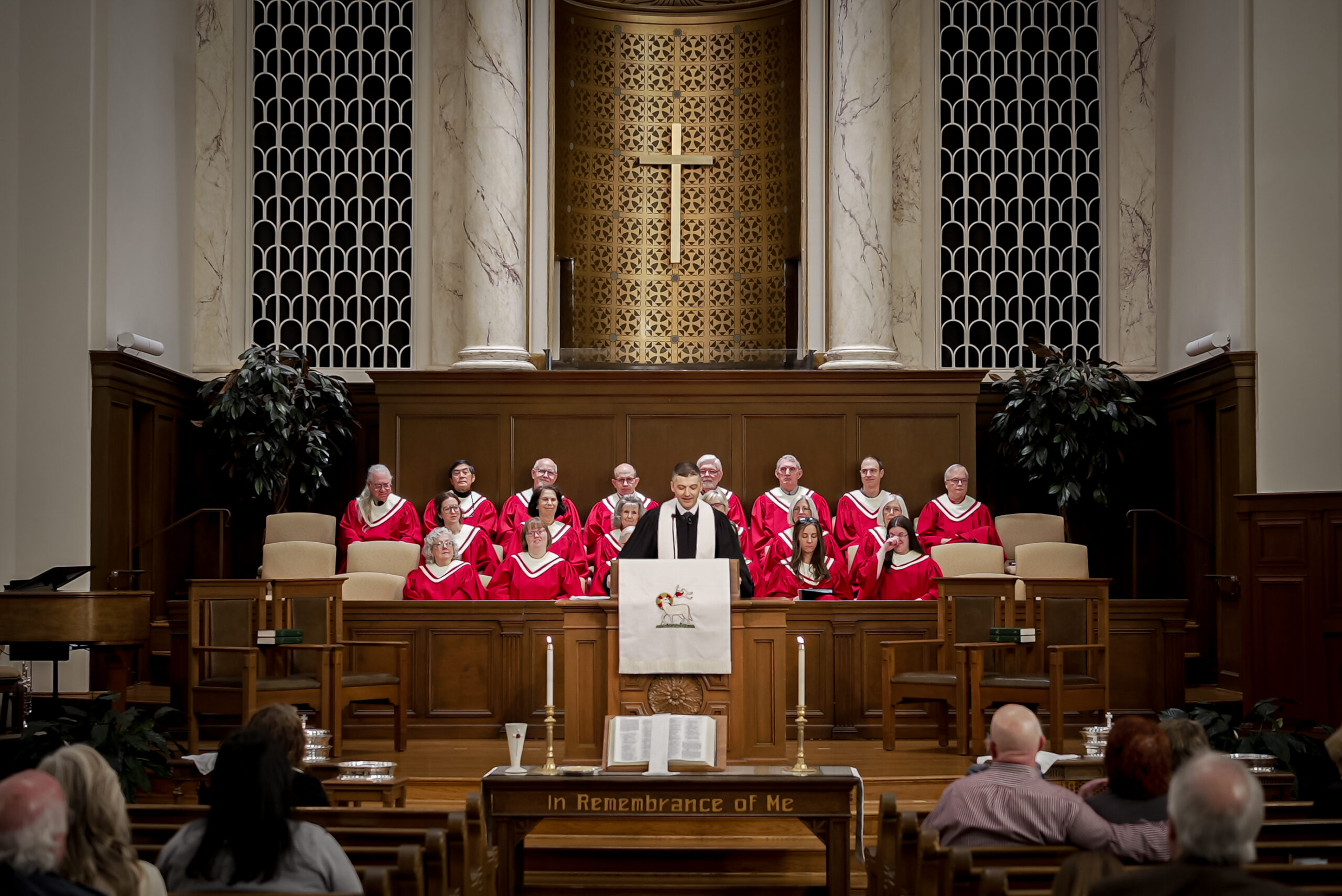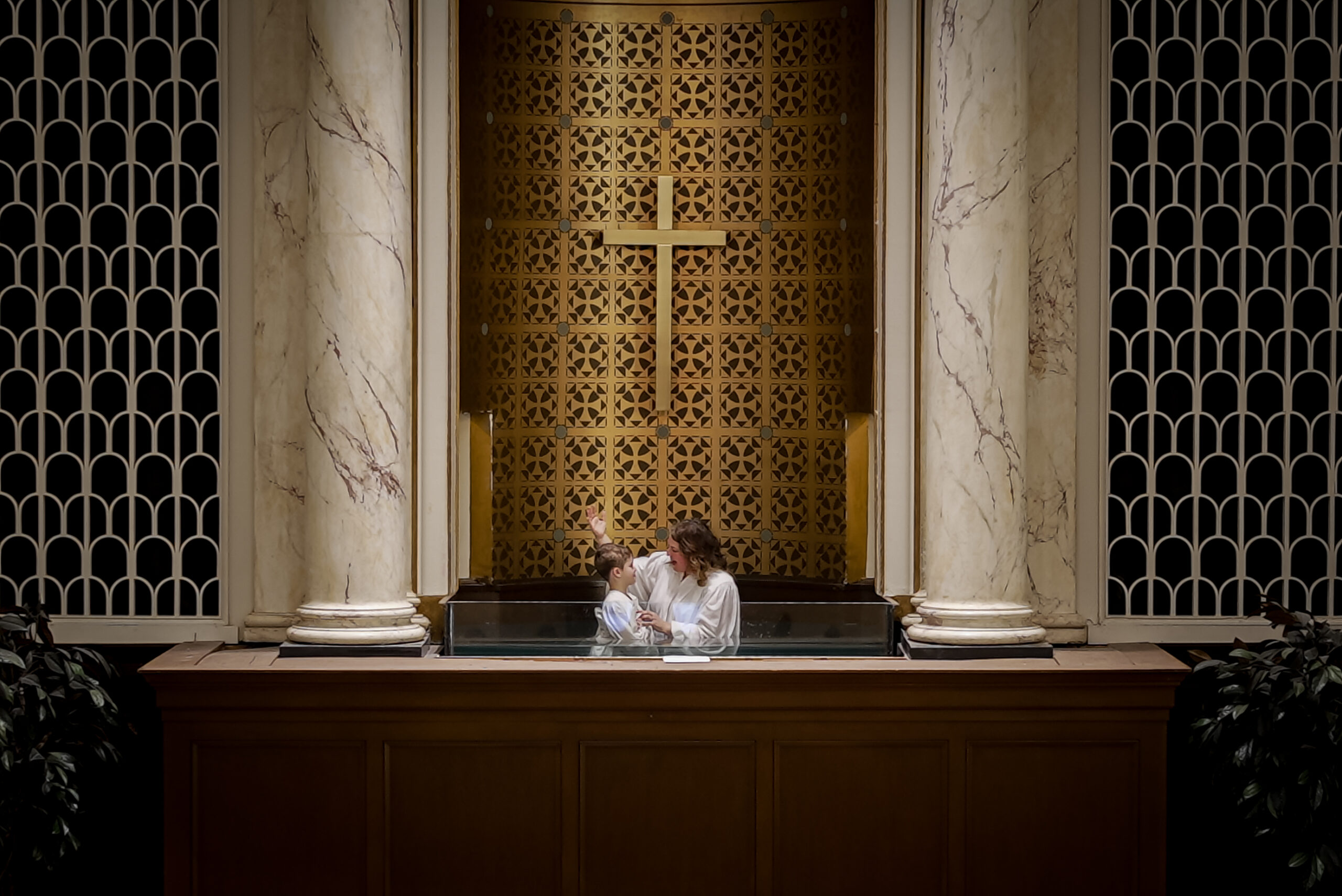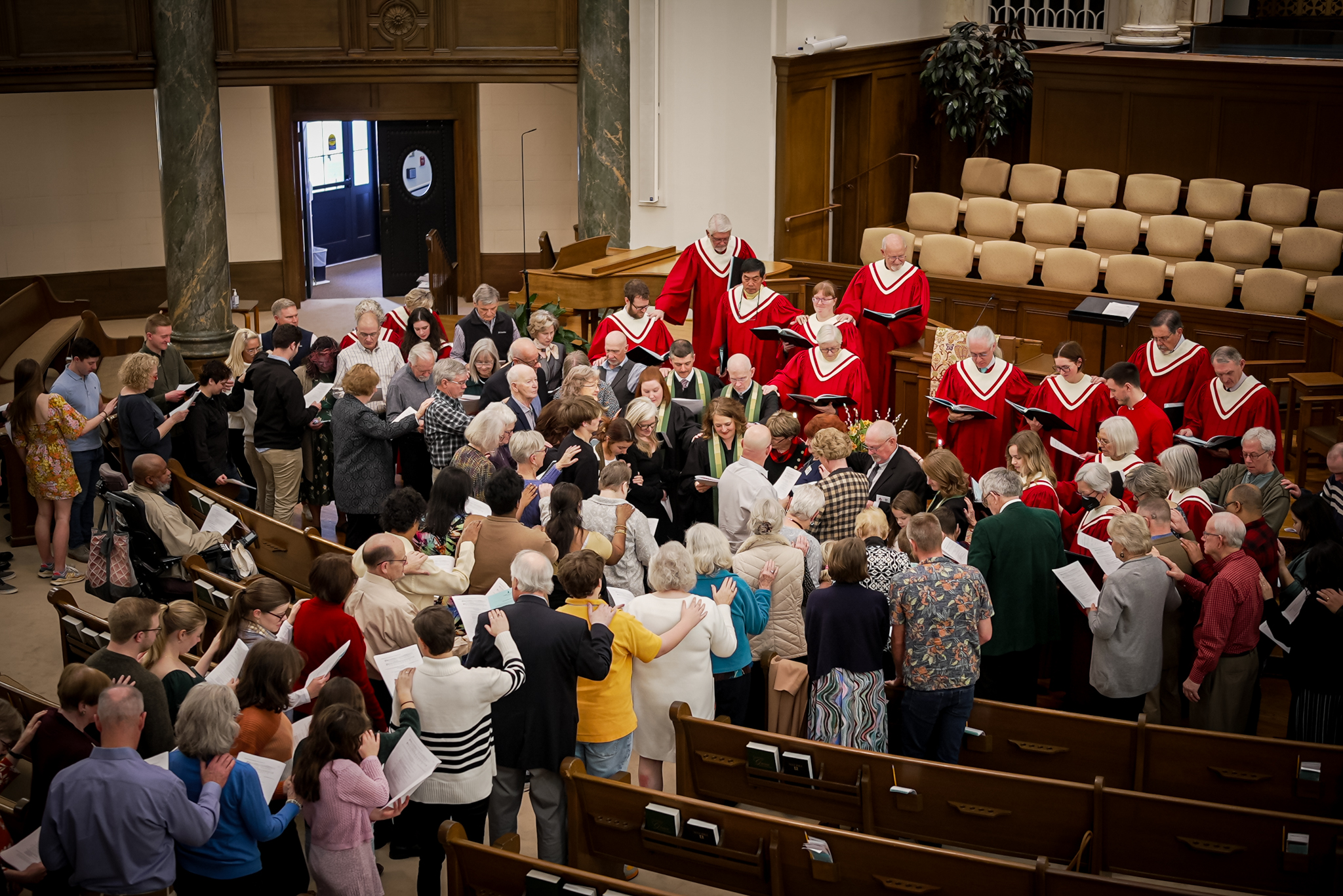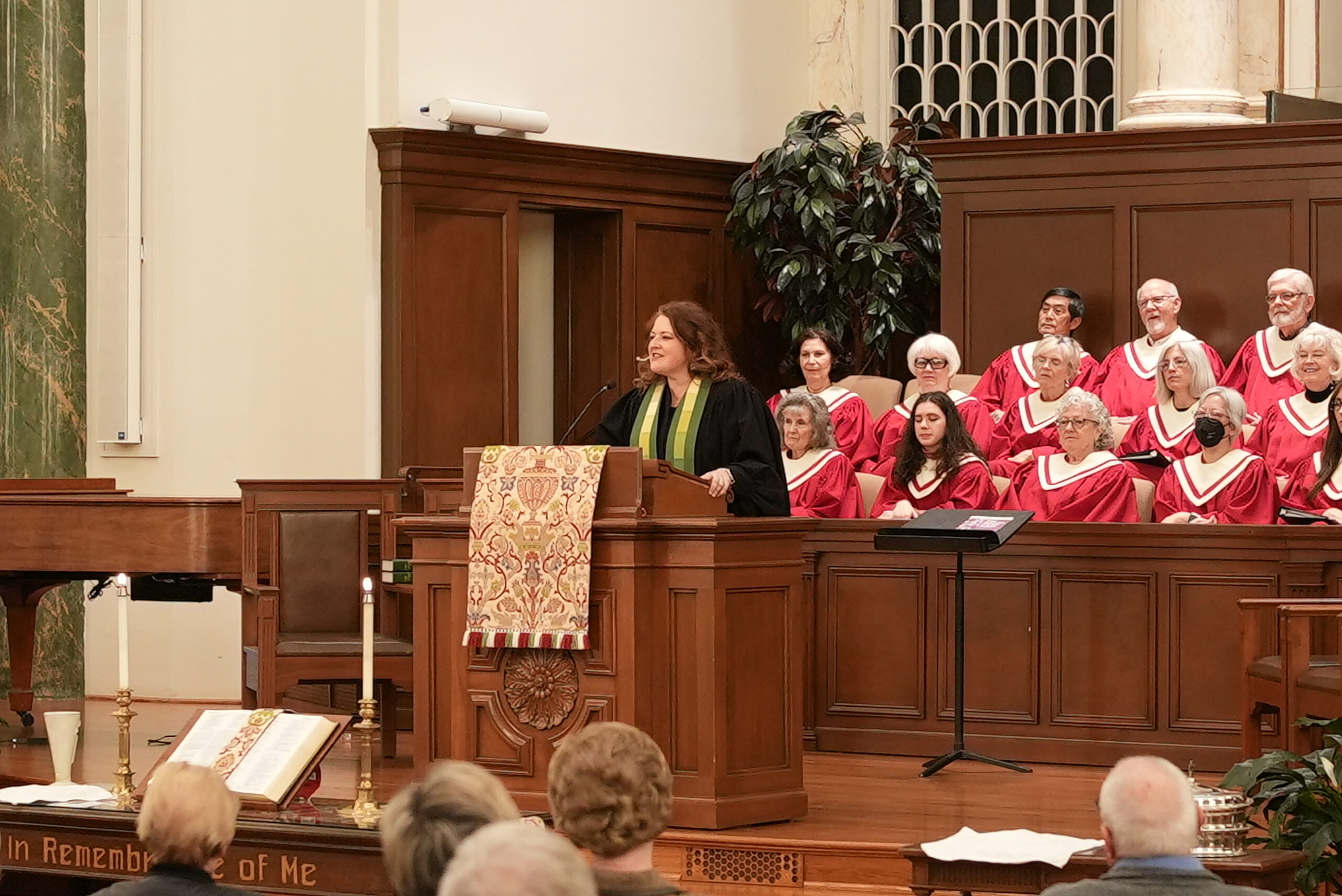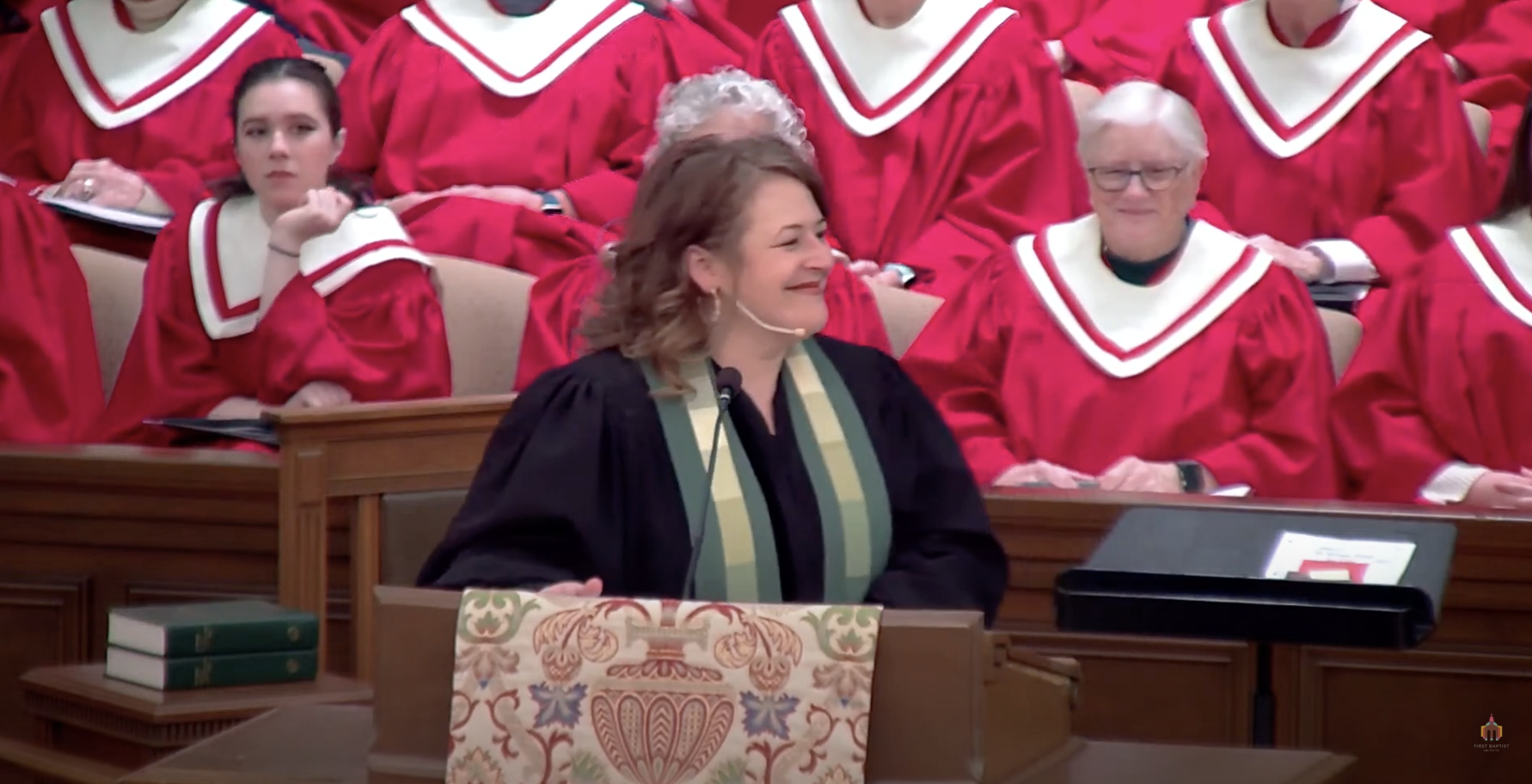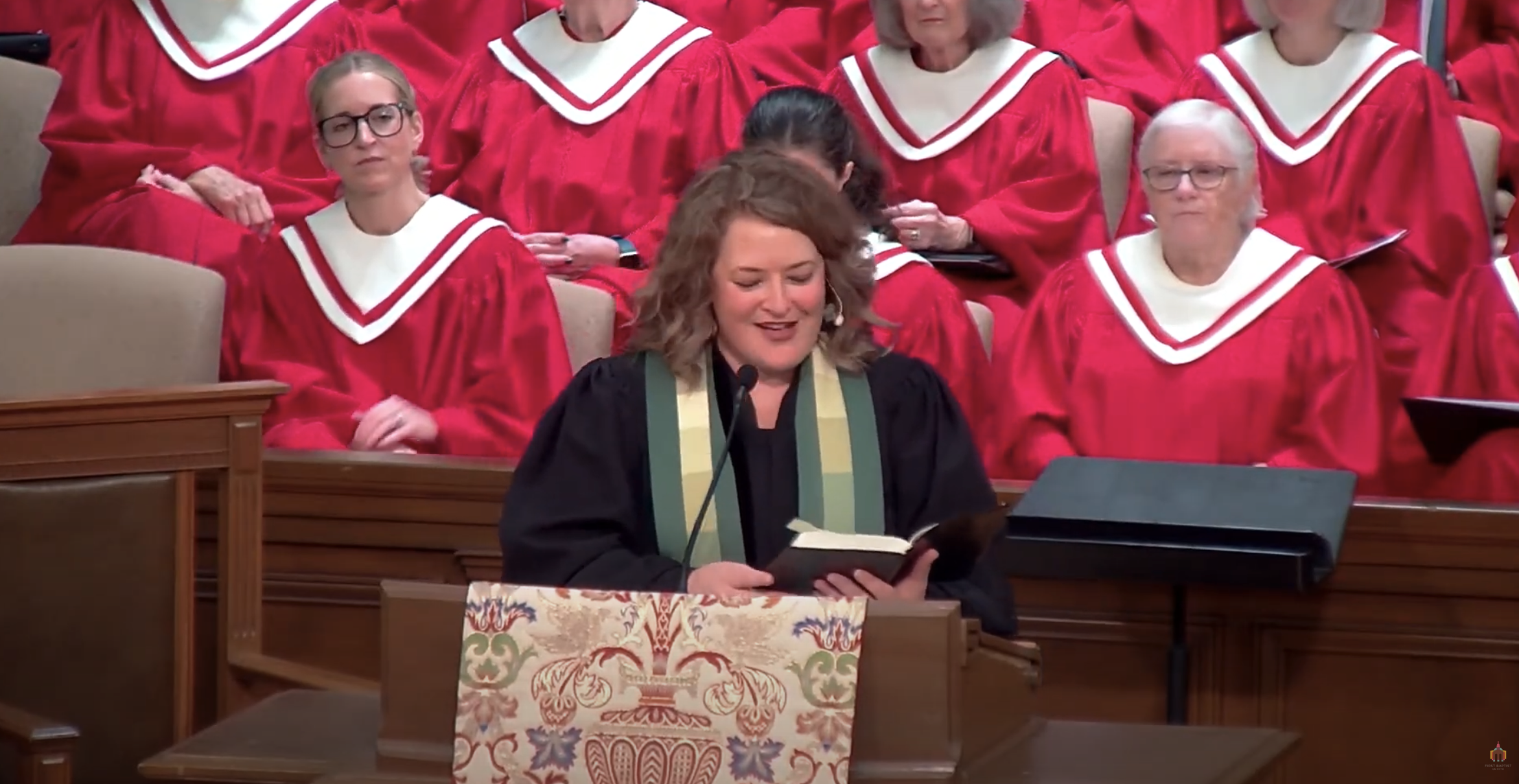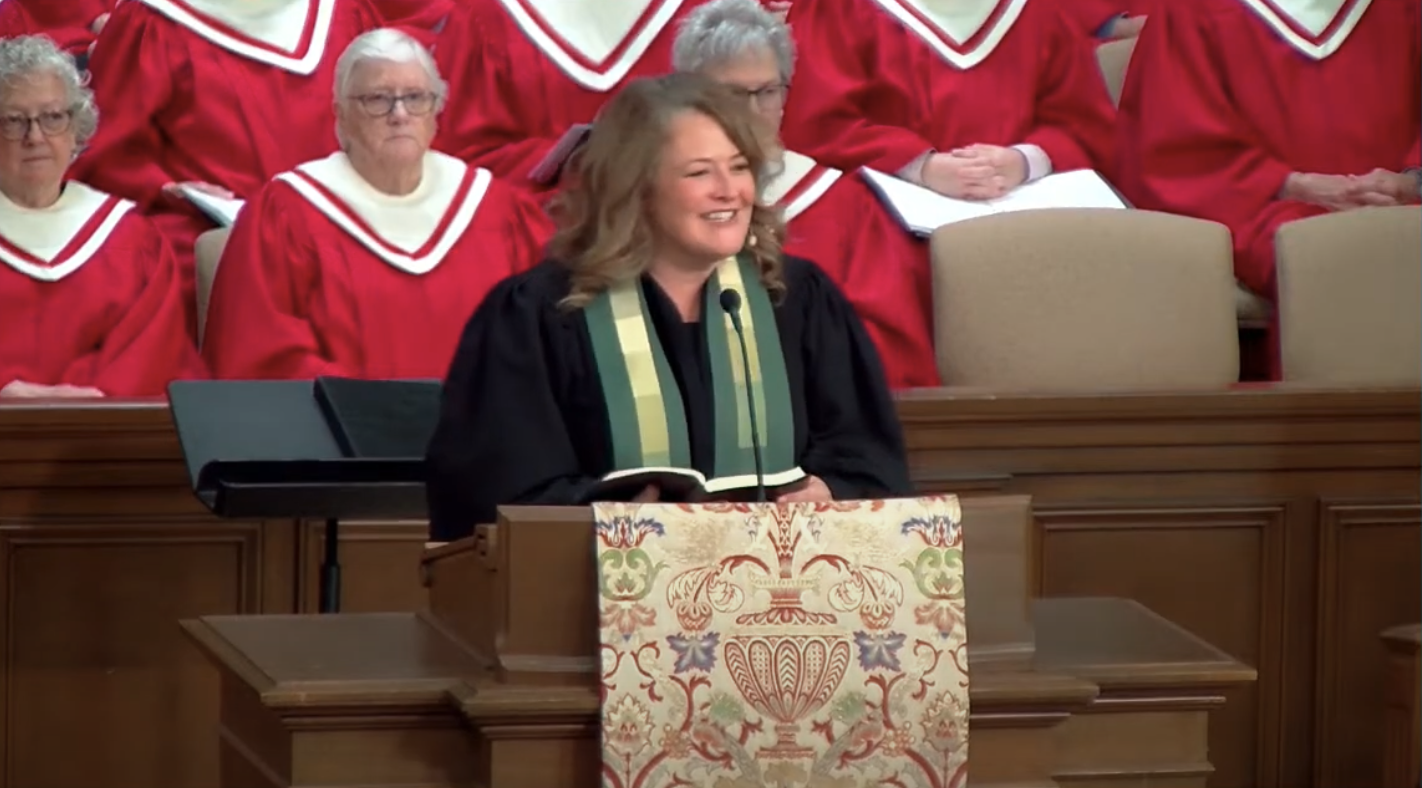I.Barbara Brown Taylor tells a story about a weekend retreat she once attended with about seventy folks interested in deepening their experience of the Christian faith. Perhaps you know the type. The opening question of the retreat-goers was to tell a story about someone who had been Christ to them in the midst of their lives. The stories were beautiful, rich with compassion and broad in love. The friend who was present through a long illness after everyone else fell away. The neighbor who stepped in like a father figure when dad became an alcoholic and self-destructed. And on and on they went, describing friend Jesus, warm and caring and present until things were made right. That is until this one woman stood up and said, “well the first thing I thought about when I tried to think who had been Christ to me was, ‘who in my life has told me the truth so clearly that I wanted to kill him for it?’”
“She burst our bubble,” Barbara Brown Taylor said, “but she was onto something vitally important that most of us would be glad to forget: namely, that the Christ is not only the one who comforts and rescues us. The Christ is also the one who challenges and upsets us, telling us the truth so clearly that we will do appalling things to make him shut up.”1
II.Which is precisely where we left off last week in the story of Jesus’s return home to Nazareth. To a packed congregation of proud neighbors, Jesus stood up. He unrolled the scroll. He found his place. “The Spirit of the Lord is upon me,” Jesus began, “and I’m to bring good news to the poor, release to the captives, recovery of sight to the blind, liberation to the oppressed, and God’s favor, God’s jubilee to all the land.” As he found his seat again, you could hear a pin drop in the room for Jesus’s final pronouncement:
Today this scripture has been fulfilled in your hearing.
What a reaction he received. “Amazed at the gracious words,” Luke characterized the congregants, they all spoke well of him. “He’s so articulate,” I imagine one to say. “You know, I was his Hebrew teacher!,” said another. The crowd’s only words of response that Luke gives us are this: “is not this Joseph’s son?”
They may have been skeptical. Isn’t this Joseph’s son? You know, the little neighborhood kid we’ve known all these years? Or the question could have conveyed distrust that Jesus could have been anything more than that. He’s acting above his raising, as some might say. Or maybe they heard in Jesus’s words the possibility that his hometown would get special treatment in his ministry. Isn’t this Joseph’s son! He’s one of us! How impressive — I wonder how Nazareth gets in on that year of jubilee, what ‘friends and family’ perks we might receive.
Then Jesus gets specific, reminding the faithful of those old border-crossing stories, of the Gentile widow at Zarephath who Elijah came to first and the Gentile general called Naama the Syrian who Elisha cleansed first. Those shifting restlessly in their synagogue pews recognized these uncomfortable stories from their scriptures. They knew these stories! The ones where God’s favor was on the outsider, where God’s prophets attended the needs of those outside their tribe. And right then, they got what Jesus was saying. They understood that he was telling them their ‘insider status’ didn’t privilege them in God’s dawning kingdom, that God’s good news wasn’t just for the descendants of Israel, that sharing a hometown with this new prophet wouldn’t advantage them one bit.
So it’s no wonder that his first sermon ended the way it did. The “all” Luke tells us about – all who were transfixed, all who filled the synagogue that day, all who spoke well of him, all who were amazed – became the “all” who were enraged. Betrayed. The worshiping congregation became the angry mob. Favor turned to violence. Curiosity changed to resentment. Luke says the “all” “got up, drove him out of the town, and led him to the brow of the hill on which their town was built, so that they might hurl him off the cliff.” Jesus sure has a way of turning calls of praise to calls for his death, doesn’t he?
III.It was a dizzying turn of events – hometown boy made good turned into a pariah run out of town. And you have to wonder, what in the world happened here? All throughout his ministry, Jesus will flip the expected order on its head. Last will become first. The humble exalted, and the proud lowered. The hungry filled, and the rich sent away empty handed. Losing lives to save them, and dying so that all might live. And perhaps most threatening of all? The outsiders are now insiders, and the insiders have no special favors in this new day. God’s grace is indiscriminate. It can’t be for me if it’s not for thee. It’s for everyone, or it’s for no one.2 In the words of the late Rachel Held Evans, “what makes the gospel offensive isn’t who it keeps out but who it lets in.”3
It bristled the faithful, then and now, because God’s ever-widening mercy has been there all along. Woven into the fabric of creation. Layered in stories like the widow at Zarephath and Namaan the Syrian. Proclaimed to Abraham whose descendents number more than the stars. Stirred within Jonah whose anger at preaching to the Ninevites was anger that God was “a gracious God and merciful, slow to anger and abounding in steadfast love.” Lived by Jesus who pointed us to God named Love, Love that isn’t ranked, prioritized, or ordered toward humanity any way other than wildly unconditional for all. “Anger and violence,” Fred Craddock says, “are the last defense of those who are made to face the truth of their own tradition which they have long defended and embraced. Learning what we already know is often painfully difficult. All of us know what it is to be at war without ourselves, sometimes making casualties of those who are guilty of nothing but speaking the truth in love.”4
IV.I’m reading a new-to-me book right now called The Kingdom, The Power, and The Glory: American Evangelicals in an Age of Extremism. In it, Christian journalist and Presbyterian pastor’s kid, Tim Alberta, chronicles the precise manner in which a host of evangelical leaders have stoked the fears of their flock at the world changing quickly around them, and leveraged that fear for the sake of the power they’re pursuing, not for the sake of the kingdom of God, but for the sake of the kingdom of the United States. To a people being told they’re under siege, as Alberta says, “desperate times called for desperate – even disgraceful – measures.”5
It is quite a read, and ohhh it stirs me up. Because among all the injustices and abuses of power in these troubled times, perhaps none fires me up as much as those of white Christian evangelical leaders who, frankly, should know better. Who stoke fear of marginalized communities like immigrants, women, LGBTQ folks, Black folks, brown folks among the many who Jesus planted his life among. Who claim to be “under siege” and persecuted when lavishing in the laps of power. Who selectively read scripture and call it truth. Who confuse their loyalties and mistake their citizenship in the kingdom of God with their citizenship of the United States. Who so pervert the gospel of inclusive love, they create a tiered system for it and bathe it in Christian language: “love family then neighbor then community then fellow Americans then the rest of the world.”6 Who have abused their power so fully, so totally, that real people – thousands of them, people I love with my whole heart – have left the faith, disgusted and with good reason.
Oh it riles me up real good. And reading about the architects of this form of Christianity has caused me more than a few times to pray, “dear lord, thank God I’m not a sinner like that.” Jesus talks about taking good news to the outsider? Take that, Al Mohler, I think to myself. Lifting up the Samaritan who cares for their neighbor? You do realize you’re the priest and the Levite here, Robert Jeffress, don’t you? I become a noisy gong and a clanging cymbal, wanting to pluck up these morally-compromised leaders and pull down the churches who support them, or like an angry member of mob ready to defend, engage, hold down the righteous fort of my own making. Surely when the time comes, Jesus will take my side.
And like he does, Jesus reminds me irritatingly that his love knows no boundaries. That no insider like me, however faithful, gets special privileges in his new day. That God’s steadfast love is just as freely given to Al Mohler and all those like him as it is to me. That God’s grace is indiscriminate, it can’t be for me if it’s not for thee. For them. It’s for everyone, or it’s for no one.7
You see, “what makes the gospel offensive isn’t who it keeps out but who it lets in.”8 And if I’m not careful, I’ll be so offended, so worked up – my eyes on all that angers and scares and sieges my attention – that Jesus’s fulfillment of this good news will fall on my deaf ears, and he’ll just walk right past and get on his way.
V.Maybe your worst offenders aren’t the same as mine, but you have them. We all do, especially in this age of outrage in which we live. So what’s to keep us from becoming an angry mob that misses Love made flesh when he’s right here among us? What will it take to align our hearts with Jesus’s heart, instead of allowing them to burn hot with rage, however righteous, at the “other” among us?
The brilliant theologian Diana Butler Bass offered a wondering in her reflection on this text. “I wonder,” she mused of the angry “all” that moved from worshipers to vigilantes, “I wonder if a few in the crowd helped protect Jesus. What if the quiet minority made a path for him to ‘pass through the midst of them?’… It surely was frightening for them; it must have been hard to go against their family, friends, and neighbors. As they followed the mob to bluff, they must have worried that if they spoke up they too could be thrown off. But instead of submitting to the tyranny of the “all,” maybe they formed a little alternative community in solidarity with each other. When Jesus was herded to the cliff, perhaps it was they who saw an opening — perhaps they who made an opening — and helped him escape. Perhaps it was with their help that “he passed through the midst of them and went on his way.”9
Friends, what if we helped to make the way for Jesus? What if we refused the lure of the angry mob – no matter which direction our anger flows – and instead felt the loving invitation of Jesus to find his heart and plant ours there too? What if we found holy offense to love without boundaries, to grace without discriminations, to mercy as much for me as it is for thee. Instead of trying to kill Jesus all over again because of it, what if we dusted off our hands and got on with the Lord’s work of joining Jesus in that kind of love and grace and mercy? What if we told the truth?
How then shall we live? Fulfilled. A good life that says, “today, the Spirit of the Lord is upon us all. For today – today! – the scripture has been fulfilled in our hearing.


